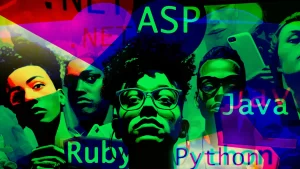
Finding ways to simplify and enhance family life is a constant pursuit. It’s fascinating to see how artificial intelligence can be leveraged to enhance various aspects of family life. The use of artificial intelligence in daily tasks can indeed enhance family experiences. Here are a few domains where artificial intelligence can play a beneficial role in family activities:
Education and Tutoring:
Utilize A.I.-powered educational platforms for personalized tutoring and assistance in various subjects.
Adaptive learning systems can tailor educational content based on a child’s individual strengths and weaknesses.
Chatbots can help answer homework questions or provide explanations on challenging topics.
Home Organization:
Implement A.I. tools for managing household tasks and schedules.
Use smart home devices with A.I. capabilities to automate routine activities like adjusting thermostat settings, turning lights on/off, or managing grocery lists.
Gift Giving:
Use A.I. tools or chatbots connected to search engines (e.g., Bing, Bard) for personalized gift suggestions.
Input details such as the recipient’s age, gender, interests, hobbies, and budget to receive tailored recommendations.
Make the selection process easier by leveraging A.I. assistance for thoughtful and unique gift ideas.
Fitness and Health:
Leverage A.I. applications for personalized fitness routines and health monitoring.
Fitness chatbots can provide workout suggestions based on individual goals, fitness levels, and available equipment.
Health apps can use A.I. to track nutrition, offer meal suggestions, and provide insights into maintaining a healthy lifestyle.
Financial Planning:
Employ A.I.-driven financial tools for budgeting, expense tracking, and investment advice.
Chatbots can assist in setting financial goals, creating savings plans, and offering recommendations for optimizing spending habits.
Storytelling:
Engage chatbots like ChatGPT or Bard to create customized bedtime stories or children’s books.
Provide detailed prompts that include the child’s preferred storytelling style, specific details to include, and the situation the story should address.
Incorporate familiar characters or elements from the child’s life to make the story more relatable and meaningful.
For an extra touch, generate illustrations using image generators like Midjourney and create a custom-made children’s book.
Entertainment and Recreation:
A.I. algorithms can suggest personalized entertainment options, such as movies, TV shows, or games, based on individual preferences.
Virtual assistants can facilitate voice-controlled home entertainment systems, making it easier to find and play desired content.
Meal Planning:
A chatbot like ChatGPT can assist in creating comprehensive meal plans based on preferences and dietary restrictions.
Provide detailed prompts, specifying preferences, dietary needs, and any restrictions.
Request meal plans for a specific duration and format, such as a printer-friendly chart for the refrigerator.
Additionally, ask the chatbot to find recipes for the suggested meals and compile a list of ingredients, grouped by grocery store aisle.
Language Learning:
A.I.-powered language learning apps can provide interactive and personalized lessons.
Chatbots can engage users in conversations, correct pronunciation, and adapt lessons based on individual progress.
Parenting Support:
A.I. can offer parenting advice and resources, providing information on child development stages, parenting techniques, and health-related guidance.
Parenting chatbots can answer queries related to parenting challenges and offer support during various phases of child rearing.
Always exercise caution and verify information, especially when using AI-generated content for tasks like recipes or advice. Additionally, enjoy the flexibility of generative AI by experimenting with different prompts and instructions to achieve varied and personalized results.










